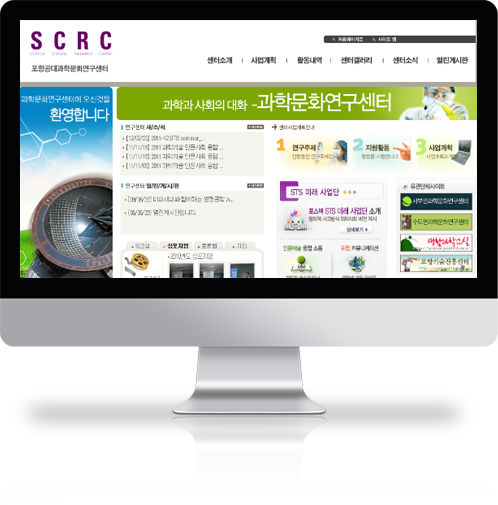SCRC
Science technology is developing and human beings' control over nature through science is ever increasing. When human beings are using natural scientific knowledge like this, establishing proper values needs to be emphasized now more than ever. Global environmental problems, increasing military technology, energy problems, revolution of information and communication, alteration of genes and life ethic problems. These are some of the social problems arising because of the rapid development of science technology. We need upright values regarding human beings’ culture in this case. Science culture research is contributing to the establishment of upright values when human beings are using natural science. Science culture is the intellectual sustenance of science technology and aggregate of values as a mental and cultural foundation for development of science technology. So, science culture is a motivating power of science technology's long term development and an essential factor as an upright guide for science technology's contribution to the development of human beings. Also, science culture is a medium that can connect science technology's development, human beings’ welfare, and life at a physical and mental level. In this case, science culture research can properly show comprehensive countermeasures about the relations of science technology and social problems.
- However, the current Korean science technology society is only interested in very professional and fragmentary knowledge in each field. There is not enough study and education about natural science and the history of engineering or related thoughts about those things. So, Korean scientific technicians have great difficulties in learning how to look at things from a larger point of view. In fact, scientific technicians are working in really limited fields. Foreign scientific technicians are frequently seen working actively in every field of politics and society as leaders in society after they have achieved great things in scientific fields. However, it is very difficult to see such things with Korean scientific technicians. Korean scientific technicians rarely have an obligation to society. Also, interdisciplinary cooperation between educational disciplines is becoming more important in a knowledge-based 21st Century. This is somewhat lacking in the current Korean scientific field. In overcoming these problems, scientific technicians should look synthetically at the whole science field and make a scientific and cultural foundation for generally understanding science and society.
- A proper understanding of science technology's process of development through a study of the historical view of science culture can improve the way people think about science technology history. Consequently, the direction of desirable future science development can be discovered. Philosophical and ethical studies about science culture can reform science technology development logically, make clear the essence of scientific thought and contribute to the inclusion of science in daily life. Also, the social study of science culture is clearly the obligation of a scientific technician in society. It can help to solve various problems caused by science technology through an ample understanding about the social characteristics of science when a social responsibility of science technology is more important these days. If the results from an in-depth study about science culture are used to educate properly, a contribution to the expansion of the science culture base and the development of a science technology state can be made.
- POSTECH has been strongly encouraging students to choose this field as a minor after the inauguration of President Sunggi Chung. The History of Science is newly incorporated as a required subject in the Department of Humanities. The importance of the related field of science history is growing larger. So, POSTECH established the Science Culture Research Center after the Korea Science and Engineering Foundation appointed POSTECH as an eastern-based university of the Science Culture Center in 2000.

